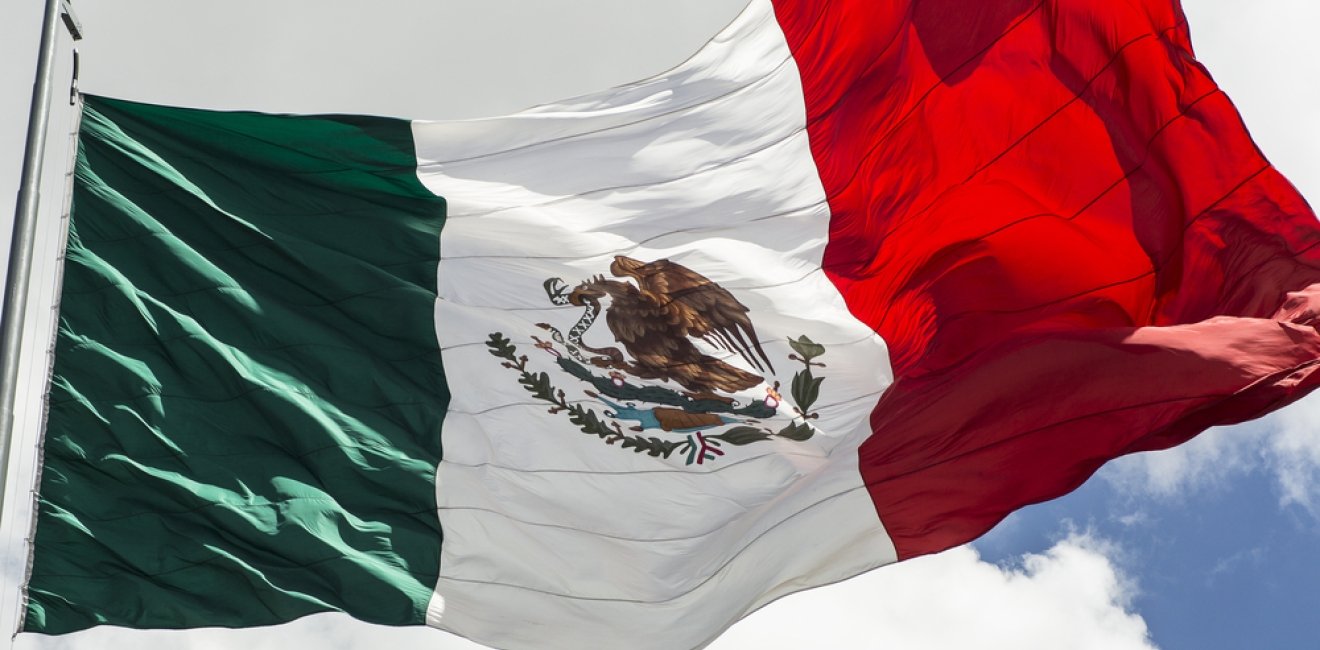As the Mexican presidential cycle gets underway, many will talk about the likelihood of each candidate winning, or the role that the Lopez Obrador government will play in deciding this outcome. I’ll try to convince readers that much more attention should be paid to the policies that these candidates promise to implement if elected to office. For the Mexican elections in 2024, these are 3 key issues I think everyone should keep an eye out for:
1. Security
It has been 3 presidential terms since Mexico embarked on the so-called ‘war on drugs’ where the Federal government deployed the armed forces to fight off organized crime groups in different parts of the country. Since then, the quantity (and severity) of the horrors that Mexicans have witnessed have been chilling: about 30,000 homicides per year, more than 100 thousand missing people and the normalization of violence in many regions of the country. As a presidential candidate, AMLO promised to change strategy and focus on the roots of crime. In reality, he expanded the reach of the armed forces in the government deconstructing the few non-military remaining institutions in charge of policing security. Many progressives lament the fact that his government never addressed crime through transitional justice or reintegration approaches. Will the next government continue the militarized strategy to fight organized crime groups, or will it attempt to incorporate other less-punitive policies?
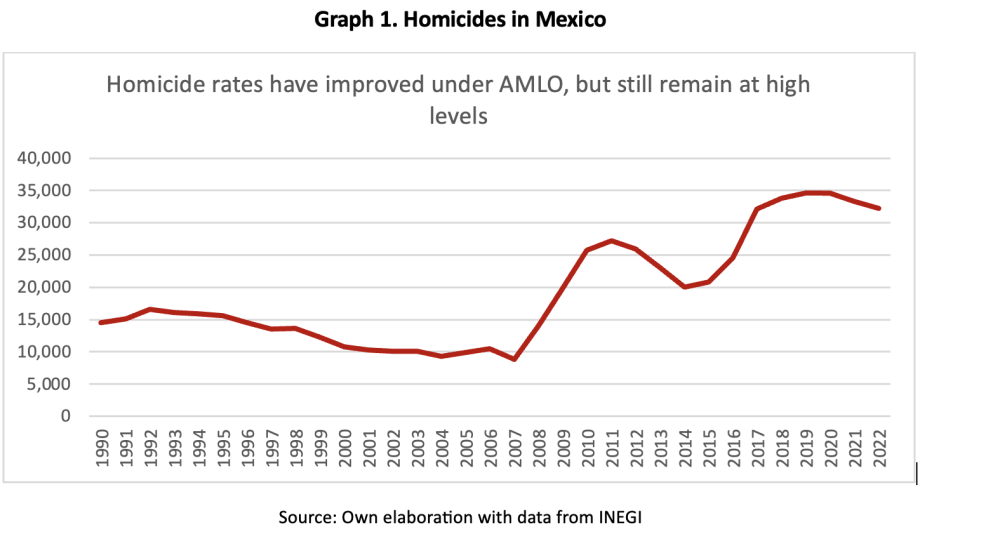
2. Poverty and Inequality
Probably the most important achievement of the AMLO government has been the reduction in the percentage of people who are poor in Mexico. Despite the complexities introduced by the pandemic, several million people abandoned this state thanks to a variety of policies: increased government spending on social programs, several raises of the minimum wage, and a labor reform that somewhat strengthened labor unions.
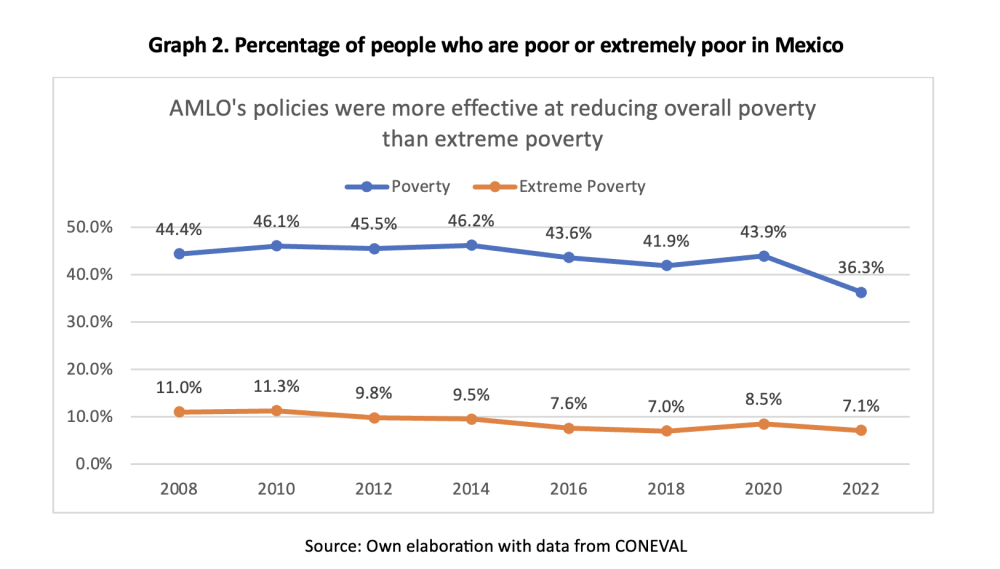
Nevertheless, if we look deeper into the many dimensions that comprise poverty, there were important setbacks in access to health services and slight ones with respect to education.
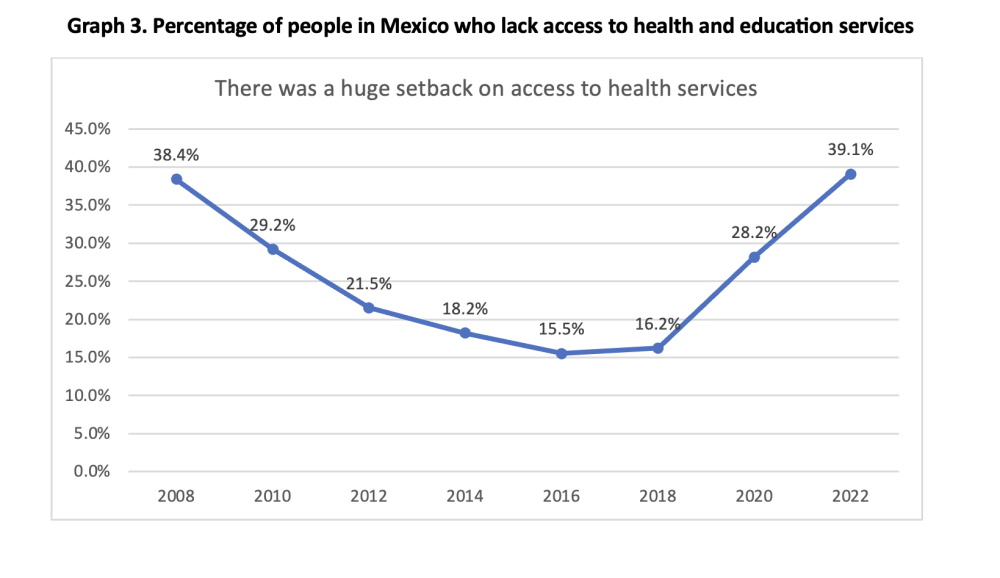
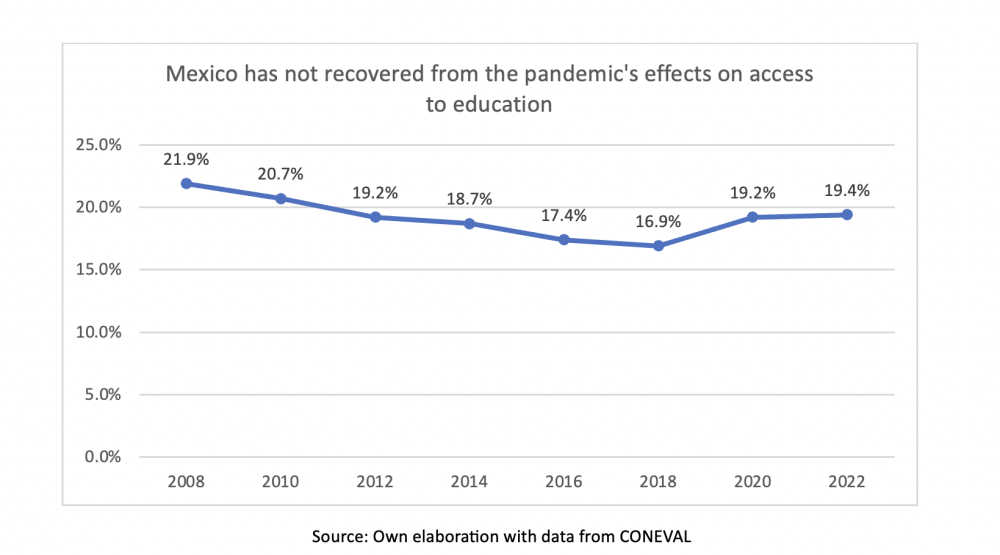
As most of these policies have been generalized, some of the benefits have been received by people that are not poor. In part, this explains why poverty has fallen at a faster rate than extreme poverty, but it also raises alarms on the fiscal sustainability of this approach in the medium and long run. Can the next government continue to reduce poverty by spending more on generalized social programs or should they focus on targeting specific groups who suffer from lack of health or education services? Which approach will help reduce inequality at a faster pace?
3. Tax Reform
Probably the least attractive topic for political candidates is tax reform. Most citizens don’t understand the nuances of how the government’s budget works and certainly, they do not like to pay more taxes. However, this is one of the most important topics we should look for in the candidates’ promises: how will they continue to fund all the government policies as the budget is swallowed by rising pension costs?
Mexico is the OECD country with the smallest tax-to-GDP ratio with around 17% collected in taxes (OECD, 2022). AMLO’s government committed to not increasing the budget’s size through a tax reform. As the current administration greatly expanded universal social programs (i.e. like the old-age pension) and guaranteed the funding for Pemex (the State-owned oil company) during its increasing financial problems, Mexico is having to forgo policies that could help it grow, more equitably and sustainably. These problems will only get exacerbated as people in Mexico become older. In 2024, pension costs will represent 4.4% of GDP, but they are increasing at more than twice the size of the Mexican economy (7% annually vs about 2.5% annually); by 2036, pensions paid by the government could represent more than 7% of GDP (CIEP, 2023).
Future governments will have to address this heated issue, lamenting the fact that the government with more political capital in decades, did not do a comprehensive (and progressive) fiscal reform.
Author

Mexico Institute
The Mexico Institute seeks to improve understanding, communication, and cooperation between Mexico and the United States by promoting original research, encouraging public discussion, and proposing policy options for enhancing the bilateral relationship. A binational Advisory Board, chaired by Luis Téllez and Earl Anthony Wayne, oversees the work of the Mexico Institute. Read more

Explore More
Browse Insights & Analysis
Greenland’s New Governing Coalition Signals Consensus

The Future of France's Far-Right Party

Ukrainian Issue in Polish Elections



